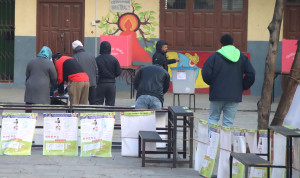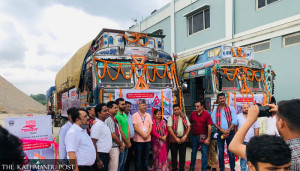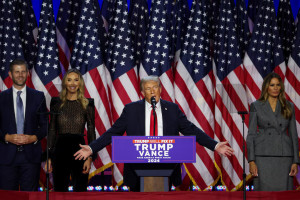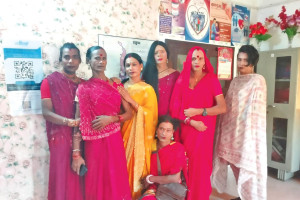Politics
After Deuba, who is second in hierarchy in Congress?
The debate heats up as Shekhar Koirala, party presidency contender, skips Koshi provincial conference.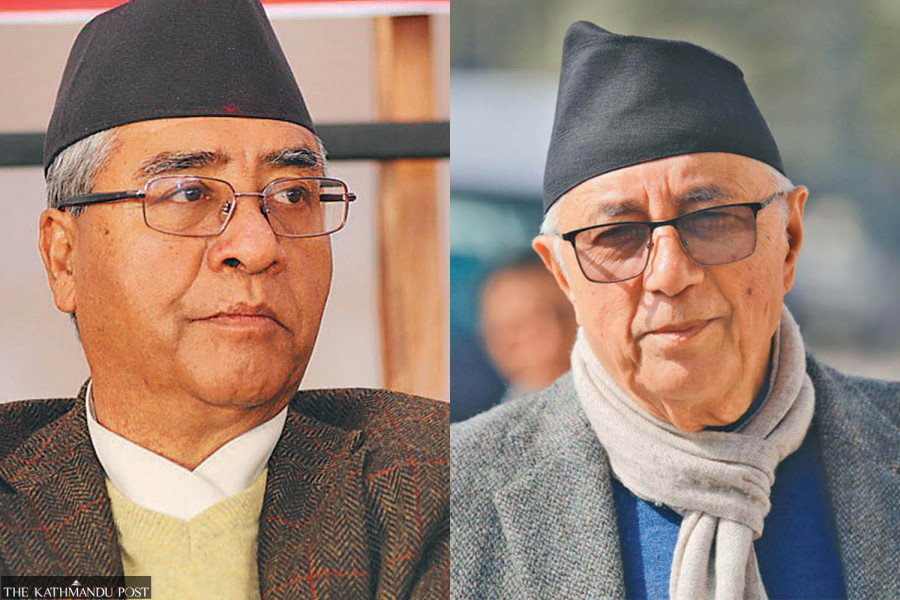
Purushottam Poudel
Three years after Sher Bahadur Deuba got re-elected to the party president of Nepali Congress, the issue of who is the party’s second in hierarchy after Deuba is yet to be resolved.
It re-emerged as a serious issue in the party’s provincial conference on Saturday.
The Nepali Congress organised the party’s Koshi provincial conference in Biratnagar, the first of its kind convened after the party adapted to the provincial structure. Some key leaders opted out though. Among those were Shekhar Koirala, who leads the party’s anti-establishment faction, and party general secretary Bishwa Prakash Sharma.
The boycott of Koirala and other leaders has triggered an intra-party debate. At the provincial level, the conference is considered the second most important event in the party’s organisational affairs after provincial convention, which elects provincial leadership.
Party president Deuba, Senior Vice President Purna Bahadur Khadka, General Secretary Gagan Thapa, former general secretary duo Shashank Koirala and Krishna Prasad Sitaula including other second-rung leaders of the party took part in the conference.
Koshi’s former chief minister Kedar Karki, who is close to Shekhar Koirala, gave two reasons why Koirala didn’t participate.
The party had not consulted Koirala on the provincial conference and he got the invitation late, said Karki, “which is why Koirala instead took part in a pre-set function in Chitwan”.
Contrary to Karki’s claim, other leaders close to Koirala said that the top leader skipped the conference for other reasons.
“As Koirala’s supporters, we had asked the top party leadership to ensure Koirala’s hierarchy would be just below party president at the conference. But our demand was ignored,” a leader close to Shekhar Koirala told the Post. “This is why he skipped the meet.”
Shekhar Koirala and his faction have been demanding that he be given the second position after the president in the party hierarchy. In Congress, the leader who is runner-up in the race for the party’s presidential election is usually given second position. Koirala is yet to be given that position. He was the closest contender for the post of president at the 14th general convention, when Deuba retained the party’s top post.
Senior journalist Purushottam Dahal, who is close to Congress, said it is not mandatory for a leader in the Congress to be given the title of senior leader with second position in the hierarchy.
“But that would also not be something abnormal,” Dahal added.
Earlier, Ramchandra Paudel, who lost to Deuba in the race for party presidency in 2016, was given the second position and designated as senior leader. Shekhar Koirala is now asking for the same.
At present, Purna Bahadur Khadka who is the party’s senior vice-president, is in the second position after party chief Deuba. Khadka was elected as vice-president at the party’s last general convention.
Koirala, who opted out of the Saturday’s provincial gathering, however, had organised a separate meeting of his faction, which was attended by municipal-level chairmen in Biratnagar on December 3 by defying the party central committee’s circular.
Leaders Shekhar Koirala, Sunil Sharma, Dig Bahadur Limbu, Minendra Rijal, and Gururaj Ghimire, among others, attended the closed session.
Ghimire, a Congress leader from Koirala-led camp, said that Koirala did not participate in Saturday's conference “due to the incompetence of the party president and the provincial president”.
Ghimire said that although Koirala was placed second in party hierarchy in the two provincial conferences organised earlier, he was not given that hierarchy in the Koshi provincial gathering—even though the event was being organised in his own constituency.
Before Koshi province, the Congress held such provincial conferences in Lumbini and Gandaki. In both gatherings, Koirala was invited in the capacity as party leader after the president, said Ghimire.
Koirala also had attended both the conferences.
While Koirala reached Chitwan citing his engagement in an pre-arranged event, General Secretary Sharma went to Solukhumbu for a Khumbu trek. According to the secretariat of Sharma, Khubmu trek had been scheduled earlier. But it had to be postponed after Sharma was appointed the party’s commander for the December 1 bypolls.
“It is the failure of the party president and provincial president to not be able to accommodate two influential party leaders in the provincial conference,” Ghimire said.
In Koshi, Uddhav Thapa, who is close to Krishna Prasad Sitaula, is the provincial chief. Sitaula himself is now considered close to party president Deuba.
“It would be easier for us if the party statute itself clearly defined the role and hierarchy of senior party leaders,” Thapa said.
General Secretary Gagan Thapa said that everyone needs space and respect while addressing the conference.
General Secretary Thapa, who participated in the conference organised in Koirala’s hometown Biratnagar, emphasised that leaders should put aside ‘technical issues’ and prioritise party unity.
“Unity in the party is essential, and necessary to bring everyone together,” said General Secretary Thapa. “It is not enough to talk about technical unity, it is a political matter that needs to be resolved politically… everyone should be accommodated.”
But Thapa, who was earlier with Koirala and jointly led the ‘Koirala-Thapa camp’, lambasted the factional gathering organised by Koirala in Biratnagar.
Shekhar Koirala and Gagan Thapa formed a panel and contested for the posts of party president and general secretary, respectively, in the last general convention. While Deuba defeated Koirala, Thapa got elected as a general secretary.
Now, Deuba is out of the race as the party statute puts a two-term limit on party chief, while both Koirala and Thapa are aspirants for the top position. Of late, Thapa has been inching closer to Deuba while Koirala has been hardening his position against Deuba and his Saturday’s posture could be part of the same strategy, observers said.
The 14th general convention of the Nepali Congress was held in December 2021. The party charter gives each elected body a tenure of four years. But if the general convention cannot be held within four years, the charter provides for a year’s extension.




 5.12°C Kathmandu
5.12°C Kathmandu






